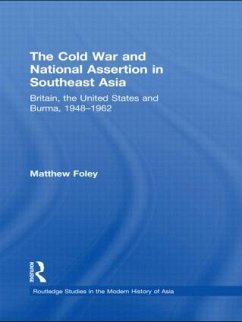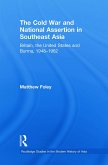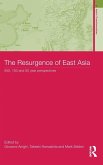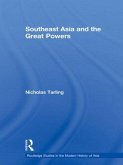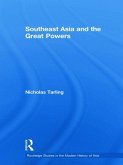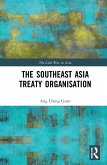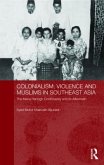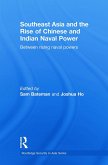A case study of post-colonial transition in Asia in the context of the emerging Cold War. It charts British and American approaches to Burma between the country's independence from the United Kingdom in 1948 and the military coup that ended civilian government in 1962.
This book charts British and American approaches to Burma between the country's independence from the United Kingdom in 1948 and the military coup that ended civilian government in 1962. It analyses the fundamental drivers of Anglo-American policy-making during this crucial period - assumptions, expectations and apprehensions that would, eventually, lead America into the disaster of Vietnam. The book suggests the key to understanding British and American approaches to Southeast Asia is to see them in terms of a search for order and stability in an increasingly chaotic and dangerous world. Such order had previously been provided by the colonial regimes of the European powers. With those regimes gone or going, British and American planners faced a region beset with new uncertainties, led by a set of nationalist politicians driven by very different, and often competing, goals and aspirations. A detailed case study of post-colonial transition in Asia in the context of the emerging Cold War, this book focuses on the retraction of European colonial power in Southeast Asia, the concomitant expansion of US engagement in the region and the broad processes underpinning these changes. It draws on unique, previously unpublished British and American archival material relating to the Burmese case and fills an important gap in historical understanding of Western engagement in Southeast Asia.
Hinweis: Dieser Artikel kann nur an eine deutsche Lieferadresse ausgeliefert werden.
This book charts British and American approaches to Burma between the country's independence from the United Kingdom in 1948 and the military coup that ended civilian government in 1962. It analyses the fundamental drivers of Anglo-American policy-making during this crucial period - assumptions, expectations and apprehensions that would, eventually, lead America into the disaster of Vietnam. The book suggests the key to understanding British and American approaches to Southeast Asia is to see them in terms of a search for order and stability in an increasingly chaotic and dangerous world. Such order had previously been provided by the colonial regimes of the European powers. With those regimes gone or going, British and American planners faced a region beset with new uncertainties, led by a set of nationalist politicians driven by very different, and often competing, goals and aspirations. A detailed case study of post-colonial transition in Asia in the context of the emerging Cold War, this book focuses on the retraction of European colonial power in Southeast Asia, the concomitant expansion of US engagement in the region and the broad processes underpinning these changes. It draws on unique, previously unpublished British and American archival material relating to the Burmese case and fills an important gap in historical understanding of Western engagement in Southeast Asia.
Hinweis: Dieser Artikel kann nur an eine deutsche Lieferadresse ausgeliefert werden.

